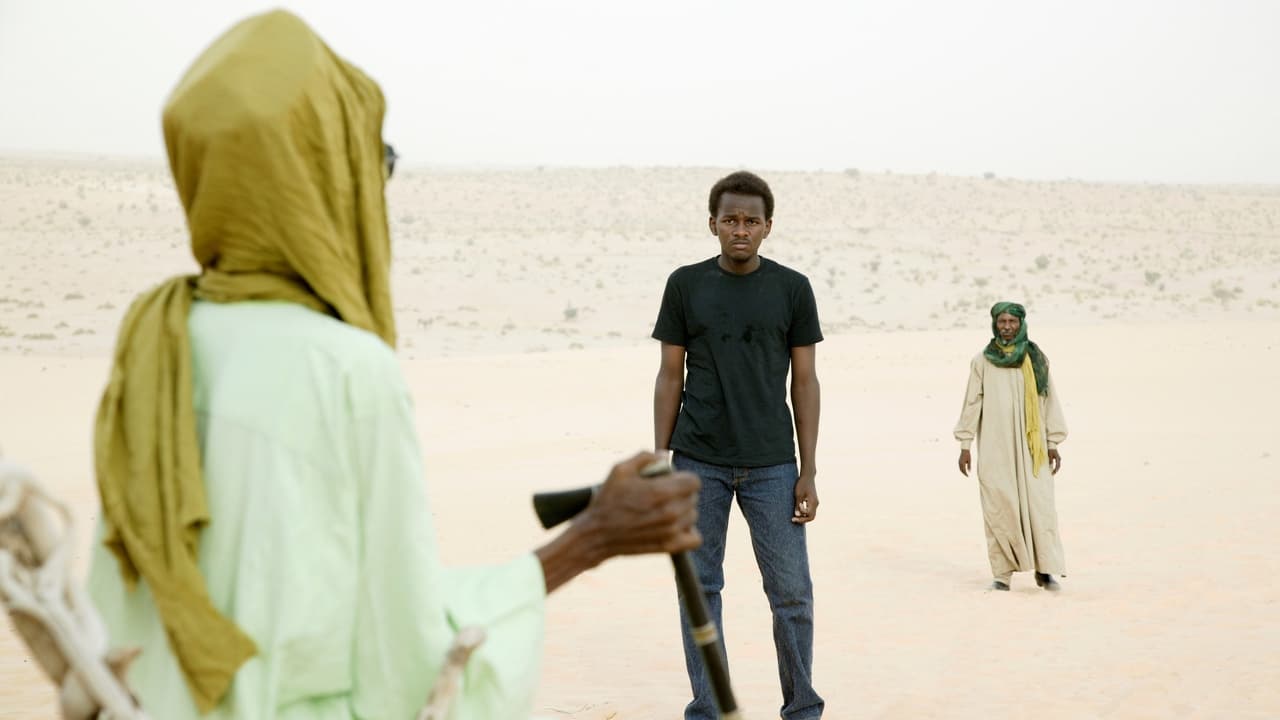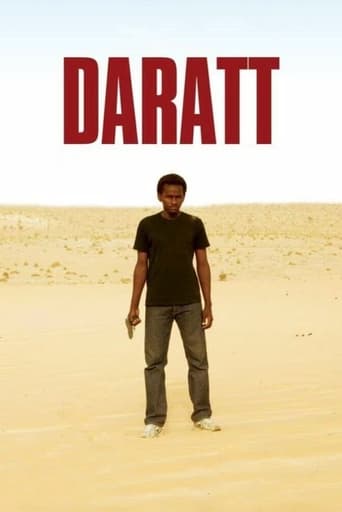



Some things I liked some I did not.
The first must-see film of the year.
I enjoyed watching this film and would recommend other to give it a try , (as I am) but this movie, although enjoyable to watch due to the better than average acting fails to add anything new to its storyline that is all too familiar to these types of movies.
View MoreIt’s sentimental, ridiculously long and only occasionally funny
View Moreperhaps the stereotypes of Americans being impatient with storytelling and in need of action is true. i found myself perpetually bored by this film. this in and of itself would not be such a bad thing, lots of film bore me. but this one actually has some decent storytelling to it. the problem comes from a lack of willingness to edit down the film, to move things along. too many shots of characters sitting around looking as if they are waiting to be filmed or photographed, glances caught at some distant nothing. mock modeling sessions for calvin klein ads. shots that consist of little more than a character walking across the frame. some tighter editing would have brought this same story in at around 45 to 50 minutes and would have lost nothing but fillers and time killers.
View MoreThere are a handful of films from Africa that can leap out like a big cat from the celluloid jungle and make the viewer think. A recent example is Daratt (Dry Season), a movie from Chad, a Central African country that was initially economically weakened by the French colonial rule and later, after gaining independence, slumped into a 40-year-old civil war. The neighboring Darfur crisis and the spillover of refugees have not ameliorated the political and economic situation of this landlocked country. Imagine living in a country that is dusty and hot with the Sahara desert to its north. Imagine living in a country where two generations of its population have not encountered peace or progress but live under the constant shadow of fear and corruption. If you can empathize with the unusually inhospitable situation, you will realize the title of the film is not merely a reflection of the hot, dusty climate, but a metaphor to describe life in Chad today.This film is a powerful mix of metaphors and fables. The atmosphere captured in the film is real. People still get their news on the radionot on TV or by reading newspapers. People still eat freshly baked sticks of French bread. People still carry guns that often can compare with the best anywhere in the world, quite in contrast to what else is available. The younger generation includes street-smart crooks and quiet, hardworking young men yearning for normal family bonds and affection that the civil war did not allow to grow. When the young man is asked by a baker what he wants, he answers laconically"Not charity." Today, what Chad requires is not charity as well, but honest hard work that will build the nation. What is unreal in the film? Corruption that eats into the soul of Chad is never glimpsed save for petty thieves selling fluorescent lights stolen from semi-dark streets in the night. What the viewer sees is a baker baking fresh bread and distributing it free to young hungry boys (the entire film suggests that young girls are an endangered species!). Now why would a person do this? Is the baker so rich that charity has become his vocation? It is possible that any scene of money changing hands for the baker's bread got lopped off on the editing floor because another baker is later shown providing aggressive competition. Terror is never shown on screen save for slippers left behind by crowds that apparently fled in terror.What are the metaphors in the film? A "blind" grandfather seeks revenge after a radio broadcast proclaims amnesty for the perpetrators of the horrors. The blind man hands a gun to his grandson, now an orphan called Atim (metaphorically meaning an orphan) to avenge the death of his parents by killing a certain individual in a far away city. This perpetrator of crimes, now a symbol of reconciliation, hard work and progress has lost his "voice" and can only speak with artificial aids. Yet he is the one with a kind heart, wanting to adopt a hardworking son, and keeps his armory of weapons well hidden.The "good" men who seek revenge are blind. The "bad" men who seek reconciliation, normalcy and family life can't speak (metaphorically). And both men are devout Muslims. That's Chad today! The final outcome of the film is easily played out for the viewer because of these physical constraints of the two men. The outcome is easily played out as social mores are not tampered withthe grandfather's command is seemingly obeyed. The "father's" love for the "son" is acknowledged. It would be too simplistic to draw parallels between Daratt and Argentine/Chilean Ariel Dorfman's play "Death and the maiden", later adapted for the screen by American novelist Rafael Yglesias for Polish director Roman Polanski. Yglesais' and Polanski's ambiguous final scene in their film of the same name, where principal players exchange loaded glances, is a delight. In total contrast, "Daratt's" final scene is not of individuals but of the dry environment, as the camera zooms out. The viewer is nudged by the director to see the larger picture of the film, not the bare story line. What Polanski and Yglesias did in an American/European film, Mahamet-Saleh Haroun has equaled with ambiguity and force rarely seen in Africa cinema. Will the dry season accept a world of reconciliation that will lead to rain (a metaphoric wet season) and prosperity for future generations indoctrinated in love and traditional values? Perhaps, yes. Perhaps, not. . "Moolade," "UCarmen e Khayelitsha," and "In Casablanca, angels don't fly" are three examples of mature works of recent African cinema, with its distinct African aesthetics, that transect the length and breadth of the vast continent and capture the tragedy and aspirations of its people. I am pleased to add "Dry Season" to my list of formidable African cinema.
View MoreI found this Directors first film, Abouna, utterly delightful on the second viewing, the first it dragged and I found myself checking my watch. Personally,I think there's a need to get into a different mindset for African films, they move at a much slower pace. Often, things are shown, not explained and require the viewer to work a lot harder at extracting meaning. Darrat is no exception, there were several episodes I wondered what the point was, but they offered fascinating windows upon a society and country of which we remain in ignorance. For example, a long camera pan across a dusty street strewn with discarded plastic bags. The characters such as the baker, unable to speak since his throat was cut, could be read as metaphors for our relationship with Africa. Does Africa and her people ever have a voice? If she speaks, are we listening? There's not much I feel I want to add to the excellent and insightful comments from previous reviewers, except I think this film can be read as that - a metaphor for African countries troubled and turbulent relations, within, between themselves and the West. The grandfathers blindness symbolises perhaps a society unable to 'see' its way forward. Or something. A subtle, fascinating film which will repay subsequent viewings.
View MoreMahamat-Saleh Haroun's story is remarkable in it's starkness of setting - the desert of Chad - and in the manner in which it unfolds. This is a two-hander in which there is very little dialogue - one can't talk and the other won't. This creates an almost surreal element to the film, where hatred seethes through silent glares.When the Chad Commission for Truth and Justice grants amnesty to some 200 war criminals, the elderly Gumar Abatcha gives his dead son's pistol to his orphaned grandson Atim and dispatches him to kill the murderer of Atim's father. Living far away, Nassara is a dangerous man who now ekes out a living as a baker, trying to forget his past. When Atim finds him, he insinuates himself into Nassara's life with the intent of exacting revenge. Dry Season would make an excellent companion film to Death and the Maiden (1994), Roman Polanski's thrilling film version of a play about political repression and revenge in Central America.I find it unfortunate that we have to wait for festivals to see films like this (I saw it at the Melbourne International Film Festival). It depicts a culture we know virtually nothing about, is visually stunning and was thoroughly engaging. An excellent film.
View More